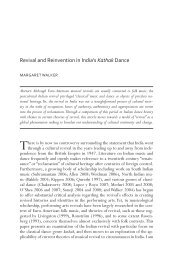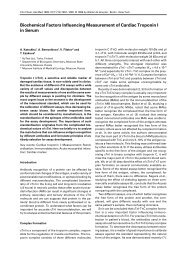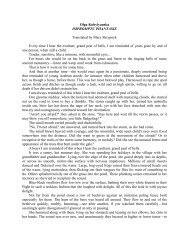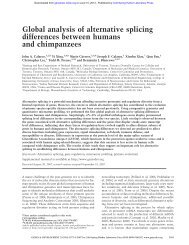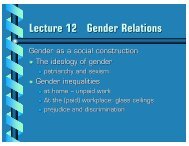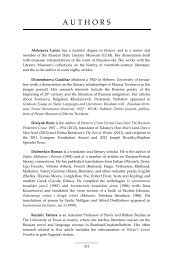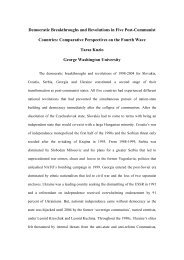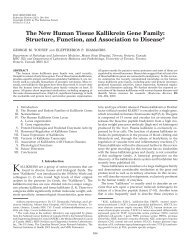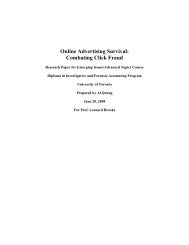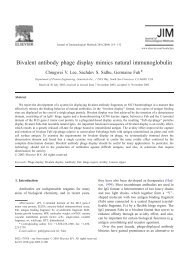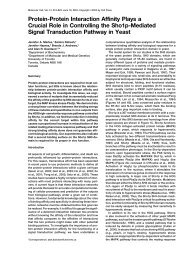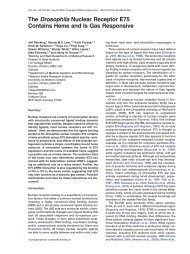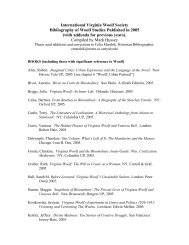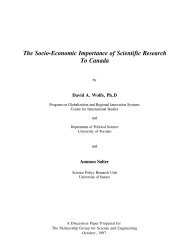Messages in the Media - University of Toronto
Messages in the Media - University of Toronto
Messages in the Media - University of Toronto
You also want an ePaper? Increase the reach of your titles
YUMPU automatically turns print PDFs into web optimized ePapers that Google loves.
EU; however, believe that each state should ma<strong>in</strong>ta<strong>in</strong> a<br />
degree <strong>of</strong> control. 14<br />
- At <strong>the</strong> March 2011 Summit, despite fierce lobby<strong>in</strong>g by<br />
Merkel, <strong>the</strong> “Competitiveness Pact” was only partially<br />
adopted and used by <strong>the</strong> Member States <strong>in</strong> a non-b<strong>in</strong>d<strong>in</strong>g<br />
letter <strong>of</strong> <strong>in</strong>tent. 15<br />
- After <strong>the</strong> Summit <strong>in</strong> March 2011, <strong>the</strong> Chancellor faced <strong>the</strong><br />
dilemma <strong>of</strong> choos<strong>in</strong>g between <strong>the</strong> wishes <strong>of</strong> <strong>the</strong> Eurozone<br />
states and <strong>the</strong> expectations <strong>of</strong> <strong>the</strong> German public. 16<br />
- It was decided that <strong>the</strong> ESM would replace <strong>the</strong> EFSF, by<br />
mid 2013. The m<strong>in</strong>isters also <strong>in</strong>creased <strong>the</strong> nom<strong>in</strong>al<br />
amount <strong>of</strong> <strong>the</strong> new crisis fund to €700 billion, for which<br />
<strong>the</strong> German capital share is 27.1 percent. The German<br />
guarantee for <strong>the</strong> ESM is 27.1 percent <strong>of</strong> €620 billion, or<br />
about €168 billion. 17<br />
European F<strong>in</strong>ancial Stability Facility<br />
- It became apparent that <strong>the</strong>re was a need for a new fund<strong>in</strong>g<br />
package. The EU and Germany both agree that Greek<br />
solvency would be calamitous The European share <strong>of</strong> <strong>the</strong><br />
new aid package is expected to take over <strong>the</strong> EFSF. The<br />
total size <strong>of</strong> <strong>the</strong> new program is 60 to 70 billion euro. The<br />
aid would come from <strong>the</strong> EU funded EFSF. The Germans<br />
favour this because it would not require ratification <strong>in</strong><br />
<strong>the</strong>ir national parliament; however many EU countries<br />
are opposed to this because <strong>of</strong> <strong>the</strong> forfeiture <strong>of</strong> power to<br />
<strong>the</strong> EU. 18 19 The Greeks will have to privatize many <strong>of</strong><br />
<strong>the</strong>ir public assets <strong>in</strong> order to raise capital to pay back<br />
loans as well as reduce public expenditure.<br />
20 21<br />
- Merkel and Sarkozy met <strong>in</strong> Berl<strong>in</strong> ahead <strong>of</strong> a second<br />
summit on <strong>the</strong> Greek crisis to reach an agreement. While<br />
Merkel wanted private creditors <strong>in</strong>volved <strong>in</strong> <strong>the</strong> EFSF,<br />
Sarkozy did not as he was worried that it could damage<br />
French banks. 22<br />
- At a meet<strong>in</strong>g <strong>in</strong> Paris, Merkel and Sarkozy proposed <strong>the</strong><br />
creation <strong>of</strong> a European economic government to EU President<br />
Van Rompuy; this proposal advocated that Eurozone<br />
countries meet twice a year to vote on economic policy<br />
issues. Accord<strong>in</strong>g to Merkel and Sarkozy, <strong>the</strong>re was a<br />
clear need for f<strong>in</strong>ancial and economic policy <strong>in</strong>tegration<br />
66



